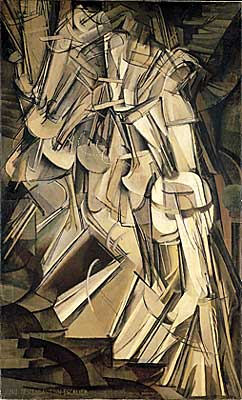You may recognize the source of the quotation that serves as title to this post. It’s Ralph Waldo Emerson writing in his 1844 essay, ‘The Poet.’ Emerson is the intellectual bedrock of America. He is a founding father of thought. He embodies the true spirit of America and represents her coming of age. Certainly, there were smart people before him. But something in his character and thinking best express the searching confidence of the American intellect that flourished between the Revolution and the Civil War. If you are a bit lost, a bit depressed, creatively mired, at sea, confused by the cascade of information delivery, then just go pick up a book of Emerson’s essays. You will become calm. You will wonder why he gets such a sudden grip on you. You will read and re-read nearly each and every single sentence. You will then ignite. Your depression, your stasis will be ended. You will be leaping ahead of yourself to learn something new – to make something – to observe something. Do not doubt me. I know whereof I speak. Emerson is the most modern and most quintessentially American mind in the history of this country. He is also one of the greatest and most productive philosopher poets to have ever lived. Henry David Thoreau and Walt Whitman, two of this country’s greatest writers, were friends of his. In fact, the three men are essentially responsible for the entire construction of the American mind. Their basic contribution, as I see it, was to modify the puritanical sense of religion that was rampant in this country and inject it with something based on Eastern thought. The mode of thinking which most closely resembles Emerson’s is Buddhism.
Here’s a fascinating line of thought from Emerson’s ‘The Poet’ essay:
The poet knows that he speaks adequately then only when he speaks somewhat wildly, or “with the flower of the mind”; not with the intellect used as an organ, but with the intellect released from all service and suffered to take its direction from its celestial life; or as the ancients were wont to express themselves, not with the intellect alone but with the intellect inebriated by nectar.
Most poets and musicians actually misinterpret that part to mean that they should experiment with drugs as mind-openers. Everyone from Jack Kerouac to Bob Dylan to Keith Richards has apparently made this rather simple-minded misreading of Emerson. Or perhaps they didn’t read him at all. I suspect they could have saved themselves an enormous amount of distraction and a few suspect singles if they’d simply finished reading this magnificent essay.
He goes on:
This is the reason why bards love wine, mead, narcotics, coffee, tea, opium, the fumes of sandalwood and tobacco, or whatever other procurers of animal exhilaration. All men avail themselves of such means as they can, to add this extraordinary power to their normal powers…
But it’s a false road. He continues…
Hence a great number of such as were professionally expressers of Beauty, as painters, poets, musicians and actors, have been more than others wont to lead a life of pleasure and indulgence; all but the few who received the true nectar; and, as it was a spurious mode of attaining freedom, as it was an emancipation not into the heavens but into the freedom of baser places, they were punished for that advantage they won, by a dissipation and deterioration.
If writing today, Mr. Emerson might well add Internet information overload to his list of baser and false nectars.
Milton says that the lyric poet may drink wine and live generously, but the epic poet, he who shall sing of the gods and their descent unto men, must drink water out of a wooden bowl.
If thou fill thy brain with Boston and New York, with fashion and covetousness, and wilt stimulate thy jaded senses with wine and French coffee, thou shalt find no radiance of wisdom in the lonely waste of the pine woods.
One must keep it simple. Emerson defines the poet as someone who can free us from thoughts that bind us. We can, like the man who freezes in a snowstorm just a few steps from his door, be locked forever in a single thought that lies just next door to the thought that could completely free us. A single liberating thought can be inches away but forever locked out of view. The poet can, by breathing his or her truths into our ear, unlock our thoughts and free us in a split second. A flash. We don’t even need to understand what it is that the poet is saying.
The poets are thus liberating gods.
I like that. It just sounds awesome.
And here is an excellent documentary film about Ralph Waldo Emerson. Watch it.
